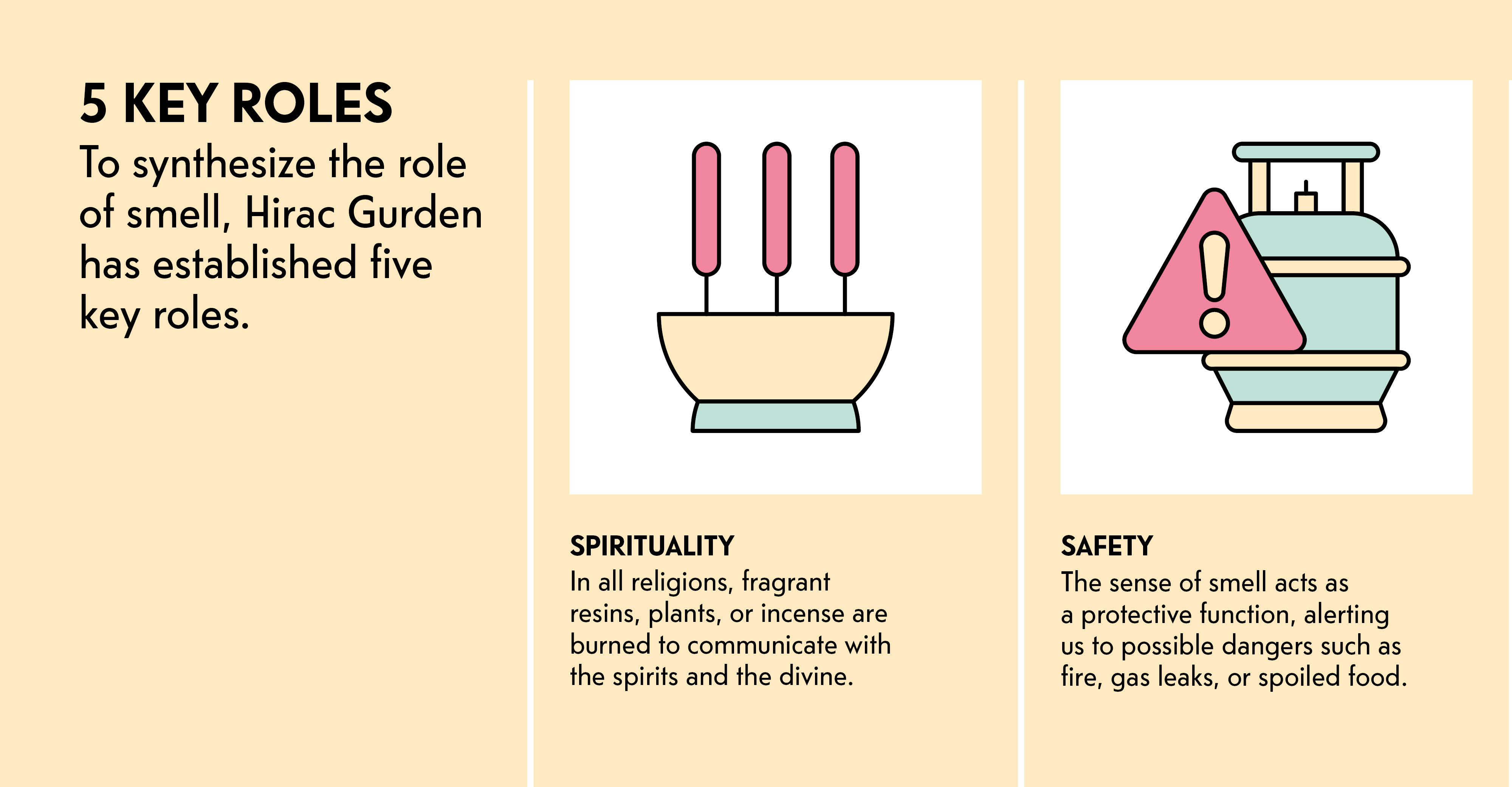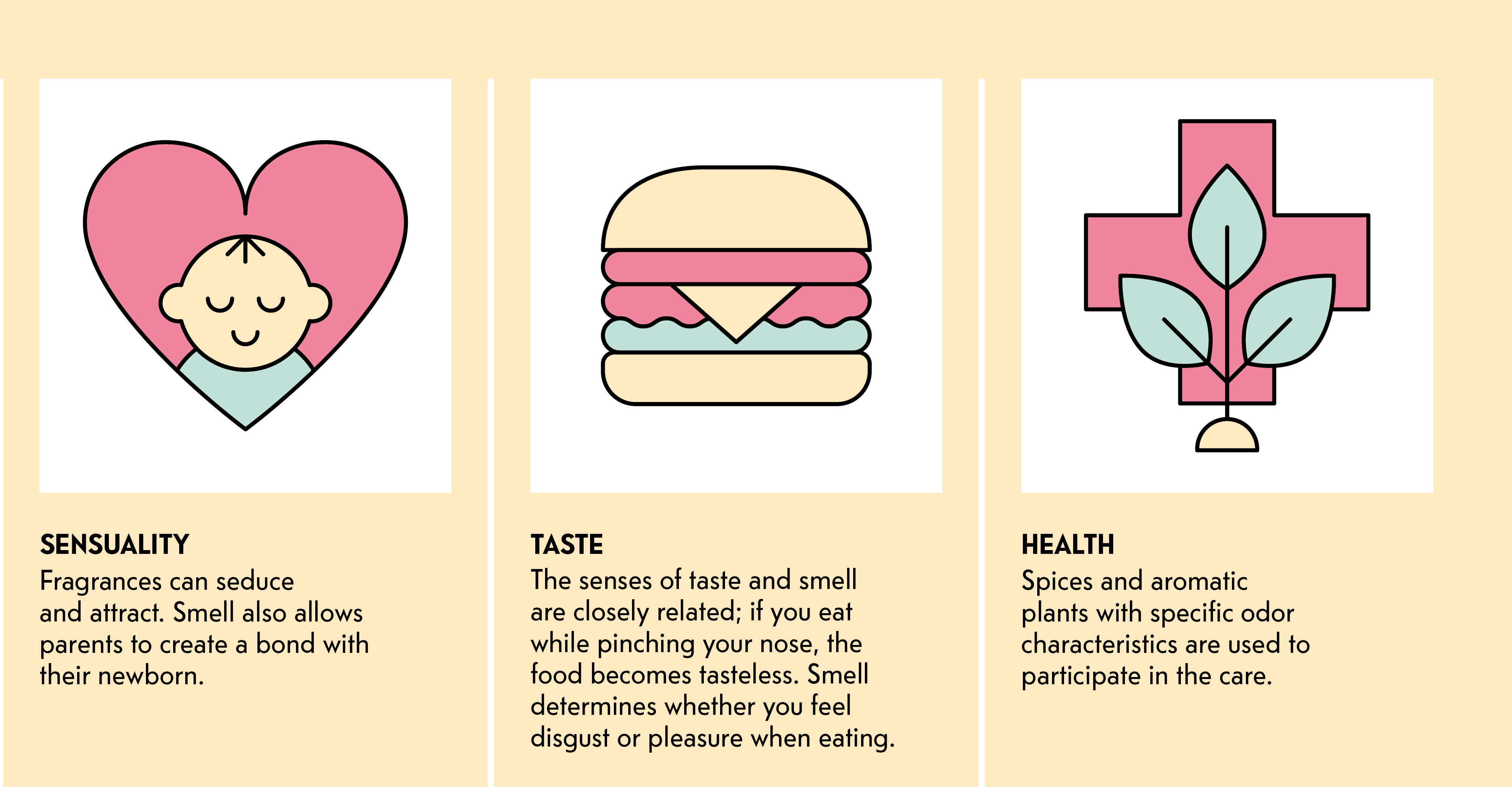
The sense of smell, DIAGNOSTIC TOOL
Publié il y a 4 mois
06.01.2025
Partager

IN VIVO How does olfactory information guide our behavior?
HIRAC GURDEN Our brain’s odor detection system operates continuously. Emotions and memory are constantly stimulated by smell. The sense of smell has a function in the hedonic (pleasure) system. Thanks to it, we can enjoy a tasty dish or a good wine. It also has a warning role: it allows us to react appropriately if we detect a burning smell, for example. Smells are everywhere, every day, our whole life: in the kitchen, in the forest, in public transit, and even on our bodies.
IV What is the “signature scent”?
HG All living beings release odors through breath, hair, skin, and body orifices. This "signature scent" that characterizes us is like a fingerprint, rich in information for ourselves and others. It changes depending on diet, strong emotions or age, and variation in metabolism. The smell in a kindergarten class is different from that of a teenager's bedroom or a retirement home. Body odor molecules can induce innate and automatic reactions – of joy or disgust – in others.
IV Can the signature scent also detect diseases?
HG Yes, because our health also influences it. Tumor cells, for example, have a particular smell. In the future, the signature scent will be added to other parameters – such as blood or urine tests – to diagnose a disease. Moreover, dog training programs are in place to detect several pathologies by olfactive recognition. Electronic solutions are also being developed for the same purpose.
IV Is it not new to take olfactory information into account to assess overall health?
HG Indeed, in ancient times, it was known that the breath of people with diabetes smelled like acetone, a bit like a rotten apple. Avicenna, a Persian physician of the 10th-11th century, proposed to smell urine and body odors to determine pathologies. In Ayurvedic medicine, which dates back more than 5,000 years, they already paid close attention to body odors to detect diseases.
How our sense of smell works
This sense involves specialized structures located in the nose and brain. Different factors can limit a person’s sense of smell.
“Smells come from chemical molecules in the air that enter the nasal passages when breathing and then reach the olfactory mucosa located in the upper part of the nasal cavities. This is where the olfactory receptors are,” explains Antoine Reinhard, head of the CHUV’s rhinology unit. When the odoriferous molecule binds to the receptor, this interaction induces an electrical signal, which is transmitted to the brain via olfactory neurons. This information is processed and then sent to different regions of the brain. Notably the primary olfactory cortex, which identifies and differentiates smells, and the limbic system, which associates odors with emotions and memories. Naturally, as we age, our sense of smell diminishes. 20% of people over 60 years old have problems with their sense of smell, and the proportion increases with age, the expert says. Without smell, one has less desire to eat; one may lose weight or have eating disorders. You can also become depressed because you lose the pleasures of smell or more anxious because the warning function of your sense of smell is impaired.”




![[Translate to Anglais:] ILLUSTRATION: ANA YAEL](https://www.invivomagazine.ch/fileadmin/_processed_/a/2/csm_poool_617ef9b4c4.jpg)
![[Translate to Anglais:] PHOTO: MAGALI GIRARDIN](https://www.invivomagazine.ch/fileadmin/_processed_/2/7/csm_DIOGENE073_b0dd8dacd4.jpg)